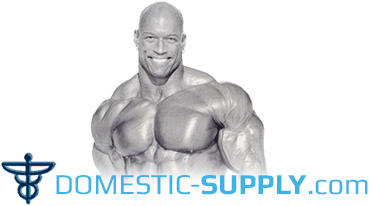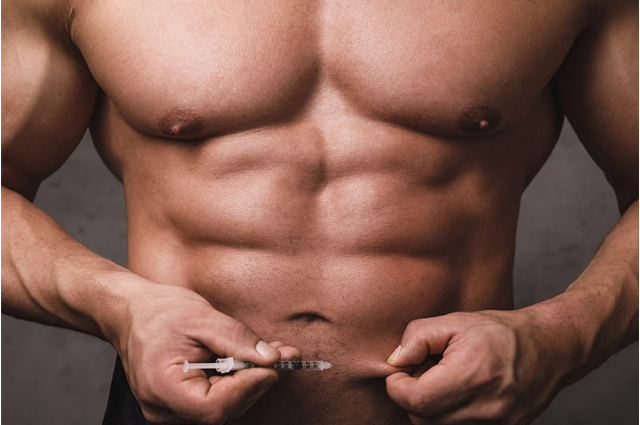13 Effective Treatments for Steroid Abuse Addiction
Steroid abuse addiction is a growing health concern, with severe physical and psychological repercussions. This article presents 13 effective treatments to combat this addiction. It delves into the importance of medical detoxification, cognitive behavioral therapy and the role of medication in the recovery process. The influence of family and group therapy, as well as exercise and nutrition counseling, is also discussed. Finally, the article examines the benefits of mindfulness and stress reduction techniques, and the pivotal role of peer support groups in ensuring a successful recovery from steroid abuse addiction. This comprehensive analysis is intended to provide a guide for both healthcare professionals and affected individuals in tackling this critical issue.
Key Takeaways
- Steroid abuse can lead to severe health problems such as high blood pressure, liver damage, heart disease, and psychiatric disorders.
- Medical detoxification is a crucial first step in safely eliminating steroids from the body, minimizing physical harm, preventing complications, and facilitating long-term treatment.
- Cognitive Behavioral Therapy (CBT) and family therapy are effective therapeutic approaches for addressing the triggers, motivations, and consequences of steroid abuse, developing coping mechanisms, and promoting behavioral change.
- Medication, when carefully monitored and tailored to the individual's needs, can play a crucial role in managing withdrawal symptoms and cravings, stabilizing mood, and addressing underlying mental health issues.
Understanding Steroid Abuse Addiction
The athlete's journey towards understanding steroid abuse addiction often begins with acknowledging the serious health implications of this detrimental habit. Steroid abuse can lead to a myriad of health problems such as high blood pressure, liver damage, heart disease, and psychiatric disorders. These issues can be irreversible, leaving the individual with lifelong complications and a significantly reduced quality of life.
The process of understanding steroid abuse addiction entails recognizing the psychological dependence that develops over time. Athletes often fall into the trap of steroid abuse due to the pressure to perform better, look more muscular, or recover faster from injuries. The short-term benefits perceived from steroid use often overshadow the long-term health risks, leading to a vicious cycle of addiction.
The empathetic approach towards understanding steroid abuse addiction involves acknowledging the societal and personal pressures athletes face. It is essential to recognize that athletes may feel trapped in a cycle of higher performance demands, fostering an environment conducive to steroid abuse.
A key aspect of comprehending steroid abuse addiction is the realization that it requires professional intervention and support. An individual struggling with steroid abuse should not be expected to overcome this challenge on their own. Health professionals, support groups, and rehabilitation centres can provide the essential tools and resources for recovery.
Importance of Medical Detoxification
During the initial phase of treatment for steroid abuse addiction, medical detoxification plays a pivotal role in safely eliminating the substance from the body. It is a crucial first step towards recovery that can help individuals regain control over their health and lives, going beyond just physical cleansing.
Medical detoxification refers to the process of managing withdrawal symptoms while the body naturally expels the harmful substances. It is often conducted under the supervision of medical professionals to ensure the safety and comfort of patients. The main goals of medical detoxification are to:
- Minimize physical harm
- Prevent complications
- Facilitate entry into long-term treatment
The importance of medical detoxification cannot be stressed enough. Steroid abuse can lead to severe physical and mental health issues, including hormonal imbalances, damage to vital organs, and psychological disturbances such as aggression and depression. By managing withdrawal symptoms and controlling cravings, medical detoxification can help prevent these complications and reduce the risk of relapse.
Moreover, detoxification paves the way for further therapeutic interventions. It provides an opportunity for healthcare professionals to assess the individual's overall health status and tailor a comprehensive treatment plan that addresses their unique needs and challenges.
Cognitive Behavioral Therapy (CBT)
Cognitive Behavioral Therapy (CBT) represents a significant therapeutic intervention in the treatment of steroid abuse addiction, focusing on modifying harmful thought patterns and behaviors. This approach aims to help patients understand and modify the thought processes that lead to substance abuse, providing them with the tools to manage their cravings and resist the urge to use steroids.
The effectiveness of CBT in treating steroid abuse addiction lies in its dual focus on the mental and behavioral aspects of addiction. On one hand, it encourages patients to develop a deeper understanding of their addiction, examining the triggers, motivations, and consequences of their substance use. On the other hand, it aids in developing coping mechanisms to manage stress and avoid relapse, promoting healthier behaviors and lifestyle changes.
CBT empowers patients to take control of their addiction and recovery process. Through individual sessions, group therapy, or a combination of both, patients learn to identify and challenge their irrational beliefs about steroid use. They also learn to replace these negative thought patterns with healthier, more constructive ones, thereby reducing the risk of relapse.
Moreover, CBT is a flexible and adaptable therapy that can be tailored to the patient's unique needs and circumstances. This is especially beneficial for steroid abusers, whose motivations and patterns of use can vary widely.
Family and Group Therapy
In the course of treatment for steroid abuse addiction, Family and Group Therapy often play a crucial role in supporting the patient's journey towards recovery. The inclusion of family members in therapy sessions not only helps the patient understand the negative impacts of their addiction on their loved ones but also provides a platform for the family to express their emotions and concerns. Group therapy, on the other hand, allows patients to interact with others who are going through similar experiences, providing a sense of camaraderie and shared struggle, which can be immensely powerful in promoting recovery.
Family and Group Therapy offer numerous benefits for patients struggling with steroid abuse addiction:
- Shared experiences and peer support: Group therapy offers patients the opportunity to share their experiences with peers who are dealing with similar issues. This sense of shared struggle can create a supportive community that fosters recovery.
- Family involvement: Involving family members in the therapy process helps patients understand how their addiction impacts those around them. Simultaneously, it provides a safe space for family members to express their feelings and concerns.
- Behavioral change: Both family and group therapy can encourage patients to change their behaviors. By confronting the negative consequences of their addiction, patients can start to take steps towards recovery.
The Role of Medication
Another essential component in the treatment of steroid abuse addiction is the judicious use of medication, which can help manage withdrawal symptoms and mitigate cravings. This approach is not a standalone solution; rather, it complements behavioral therapies, providing a holistic approach to recovery.
Medications can alleviate the acute physical symptoms of withdrawal, such as pain and nausea, making the detoxification process more manageable. They can also help in reducing the psychological cravings that often accompany steroid cessation. A common medication used in such a treatment is Naltrexone, which can help diminish the desire for steroids and manage post-acute withdrawal symptoms.
However, it's crucial to administer these medications under the strict supervision of healthcare professionals. Improper usage can potentially lead to further addiction, defeating the purpose of the treatment. Therefore, the role of medication in the treatment of steroid abuse addiction should be seen as a carefully monitored element within a broader therapeutic strategy.
Moreover, it's key to remember that every individual's journey to recovery is unique, and the effectiveness of medications varies from person to person. While some individuals respond well to medication-assisted treatment, others might benefit more from different therapeutic interventions.
Exercise and Nutrition Counseling
Why is exercise and nutrition counseling considered a crucial aspect of treating steroid abuse addiction? Steroid abuse typically stems from an individual's desire to enhance physical performance or appearance. Steroids artificially boost the production of testosterone, leading to muscle growth and increased physical strength. However, the discontinuation of steroid use can lead to withdrawal symptoms, including depression and fatigue, which can hinder the individual's motivation to maintain a healthy lifestyle. Thus, exercise and proper nutrition are key to mitigating these health risks and facilitating recovery.
- Exercise: A structured exercise regimen can help restore the balance of natural hormones in the body. It can also help manage withdrawal symptoms, improve mood, and promote a healthier body image, thereby reducing the desire to use steroids.
- Nutrition: Proper nutrition is essential to repair the physical damage caused by steroid abuse. A balanced diet rich in protein, healthy fats, and complex carbohydrates can support muscle growth and recovery, without the need for harmful substances.
- Counseling: Counseling in both exercise and nutrition can provide the necessary education and motivation for individuals to maintain a healthy lifestyle. It empowers individuals to make informed decisions about their health and wellness, fostering a sense of control that is often lost in addiction.
Mindfulness and Stress Reduction Techniques
Mindfulness and stress reduction techniques represent another vital component in the treatment of steroid abuse addiction, offering practical tools to manage cravings and alleviate withdrawal symptoms. The fundamental principle of mindfulness centres on fostering an enhanced level of self-awareness, helping individuals to understand their thoughts, emotions, and bodily sensations without judgment. This promotes a more conscious response to cravings for steroids, replacing impulsive reactions with considered choices.
From an analytical perspective, recent studies have demonstrated the effectiveness of mindfulness as an integral part of addiction recovery. These techniques work by reshaping the brain's reward system, making it less reactive to drug-related cues and more responsive to natural rewards. As such, mindfulness techniques have shown promise in reducing the likelihood of relapse by altering the underlying neurological pathways involved in addiction.
Stress reduction techniques such as yoga, meditation, and deep breathing exercises, also play an essential role in steroid abuse recovery. Chronic stress is a significant trigger for substance abuse, and learning to manage it effectively can substantially decrease the risk of relapse. These techniques help to foster a sense of calm and control, enabling individuals to deal with stressful situations without resorting to substance use.
In an empathetic vein, it's crucial to understand that steroid abuse is often driven by deep-seated issues such as body image dissatisfaction or performance anxiety. Mindfulness and stress reduction techniques can help individuals address these underlying concerns, fostering self-acceptance and encouraging healthier coping mechanisms. Ultimately, these methods represent a non-judgmental, compassionate approach to recovery, offering a holistic path towards healing and sobriety.
The Power of Peer Support Groups
The integration of peer support groups in the recovery process marks another pivotal aspect of comprehensive treatment for steroid abuse addiction. These groups provide an environment of acceptance and understanding, crucial for those grappling with the emotional turmoil often associated with addiction. They present opportunities for individuals to share personal experiences, learn from others in similar situations, and develop coping mechanisms that can aid in their journey towards recovery.
Peer support groups harness the power of shared experiences, fostering a sense of belonging that can significantly enhance the recovery process. These groups often facilitate bonds that extend beyond the addiction, cultivating a network of support that can be instrumental in preventing relapse.
Here are three key elements that make peer support groups particularly effective:
- Mutual understanding and empathy: The sense of being understood by others who have walked a similar path is immensely comforting and can instill hope and resilience in individuals battling addiction.
- Exchange of strategies: Peer groups provide a platform for sharing effective coping strategies, enhancing the collective ability to resist triggers and manage cravings.
- Accountability and motivation: The shared commitment to recovery can serve as a powerful motivator, while the accountability within the group can deter individuals from relapsing.
Frequently Asked Questions
What Are the Legal Implications of Steroid Abuse and Addiction?"
The legal implications of steroid abuse and addiction are substantial. Illegal possession or distribution of steroids can lead to criminal charges, fines, and imprisonment. Additionally, professional athletes may face suspensions, bans, and damage to their reputation. Furthermore, steroid abuse is both a public health and legal issue due to its association with a range of physical and psychological harms, including aggression, mood disorders, and cardiovascular disease.
Are There Any Other Forms of Therapy Not Mentioned in the Article That Can Be Beneficial for Steroid Abuse Addiction?"
Yes, aside from those mentioned, other possible beneficial therapies for steroid abuse addiction include holistic approaches such as yoga and meditation, which can help manage stress and cravings. Additionally, family therapy can provide supportive environment. Furthermore, Cognitive Behavioral Therapy (CBT) is often used to change the negative thought patterns that lead to substance abuse. However, it's crucial to consult with a healthcare professional to determine the most effective treatment strategy.
What Are Some Common Misconceptions About Steroid Abuse Addiction?"
Common misconceptions about steroid abuse addiction include the belief that it is not a 'real' addiction since steroids are not psychoactive substances. Another misconception is that steroid abuse only affects athletes or bodybuilders. Furthermore, people often underestimate the severity of withdrawal symptoms, which can include depression and suicidal thoughts. It is crucial to dispel these misconceptions to foster better understanding and treatment of steroid abuse addiction.
How Does Steroid Abuse Affect One's Social and Professional Life?"
Steroid abuse can significantly impact one's social and professional life. It may lead to erratic or aggressive behavior, causing difficulties in maintaining healthy relationships. Professionally, the physical side effects can hinder performance and productivity. Moreover, the legal implications of steroid use can also negatively affect one's career. It is crucial to raise awareness about these repercussions to prevent misuse and promote well-being.
How Can Societal Pressures Contribute to Steroid Abuse and Addiction?"
Societal pressures, particularly in sports and fitness environments, can significantly contribute to steroid abuse and addiction. The pursuit of physical excellence, reinforced by societal norms and expectations, may lead individuals to use steroids to enhance performance or appearance. This, coupled with the addictive properties of steroids, creates a cycle of abuse and dependency. It's crucial to address these societal pressures and promote healthy, drug-free ways to achieve physical goals.
Conclusion
In conclusion, steroid abuse addiction requires a comprehensive and holistic approach to treatment. Medical detoxification, therapy techniques such as CBT, family therapy, and peer support groups, along with medication, exercise, nutrition counseling and stress reduction methods all play crucial roles in treatment. By utilizing these strategies, individuals struggling with steroid abuse addiction can achieve recovery and reclaim their health, thus ultimately improving their overall quality of life.









